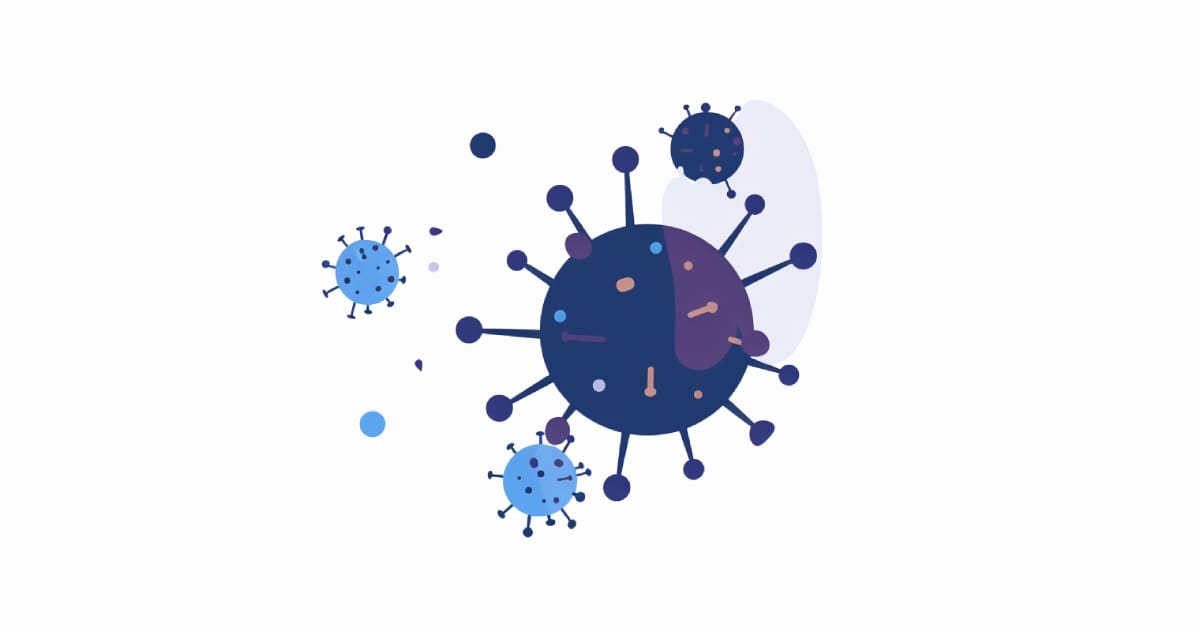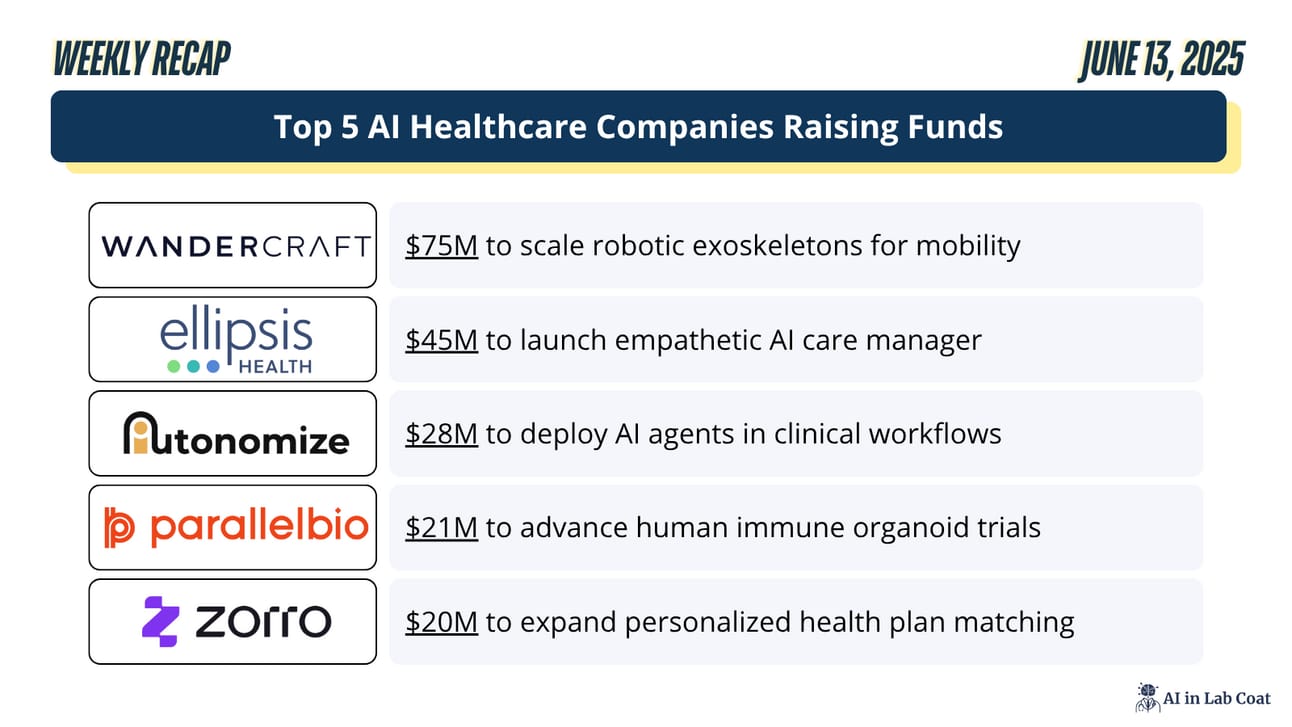
Happy Friday! It’s June 13th.
Every time I think the EU is ready to finally set the rules for AI, things slow down again.
The AI Act became law back in August 2024, but the real obligations keep getting pushed. Key rules for general-purpose AI were meant to hit this August, but now lawmakers are talking about more delays.
Codes of practice (originally due in May) still aren’t ready, and technical standards are missing. If you work in health tech or biotech, don’t expect regulatory certainty any time soon.
Our picks for the week:
Featured Research: Nanopore AI for Viral Diagnosis
Perspectives: Gender Gap in AI Healthcare Trust
Product Pipeline: First AI Tool to Measure Brain Bleeds
Policy & Ethics: FDA’s AI Future Starts Now
Read Time: 5 minutes
FEATURED RESEARCH
Nanopore Technology and AI Team Up for Faster Viral Diagnosis

Viral infections can be difficult to diagnose quickly and accurately. Standard methods like PCR testing take hours and can’t tell if the genetic material is from a live or dead virus. This crucial piece of information is needed for treatment decisions, especially for infections that affect vision.
Rapid AI virus detection: Researchers from Osaka University have developed a rapid AI-assisted diagnostic test that can detect live viruses in minutes using nanopore technology.
Unlike PCR, this method detects individual viral particles based on their unique electrical signatures as they pass through these nanopores.
Early results: In tests detecting herpesvirus from eye-fluid samples, the AI-powered nanopore method achieved nearly 100% accuracy in positive samples. Specificity, the ability to rule out negative samples, was around 90% under optimized conditions.
This fast and accurate test can speed up diagnosis of viral eye infections where time is of the essence to prevent blindness.
Next steps: The authors recommend further improvements and clinical validation but early results look promising.
The hope is that rapid detection of live viruses would extend to other clinical applications and benefit patients with various viral diseases.
For more details: Full Article
Brain Booster
Which surprising truth highlights the power of viruses in the oceans?
Select the right answer! (See explanation below)
Opinion and Perspectives
HEALTHCARE AI TRUST
Global Survey Reveals Patients’ Trust Crucial for AI Adoption in Healthcare
By now, we all know of AI’s big promise in healthcare, but a major global survey shows successful adoption depends on patient trust, transparency, and interestingly, demographics.
Global survey reveals AI acceptance gap: Researchers from the Technical University of Munich conducted one of the largest studies on AI attitudes, surveying nearly 14,000 patients across 74 hospitals in 43 countries.
Published in JAMA Network Open, the study found overall support for healthcare AI was 57.6%, but attitudes varied greatly among different groups:
Gender Gap: Women were less supportive (55.6%) than men (59.1%).
Health Status: Only 29.2% of patients with poorer health were positive, compared to 64.5% of healthier patients.
Tech literacy: Those with higher tech skills and device use were significantly more positive and trusting of AI.
Trust and transparency matter: The study also found patient concerns about AI implementation:
Less than half (41.8%) fully trusted AI to predict treatment outcomes.
Over 50% were worried about data security, reduced doctor interaction and increased healthcare costs.
Physician oversight preferred: A majority (72.9%) preferred physician-led decisions over AI-only. And 70% wanted transparent, explainable AI, even if accuracy decreased.
The way forward: Lead researcher Dr. Felix Busch says these results show we need to implement AI carefully, adapt to local demographics, be transparent and have clear physician oversight.
By doing so we can use AI’s potential while respecting patient values and concerns.
For more details: Full Article
Top Funded Startups

Exclusive - State of Healthcare AI Brief
MONTHLY REPORT
The State of Healthcare AI: May 2025's Latest Brief

AI healthcare startups raised $1.72 billion in May.
These briefs are evolving; this time, the format is a bit different with more concise content to keep you updated on all AI Healthcare!
Access Our Report and Funding Database: Full Review
Product Pipeline
CT SCAN
Viz.ai Receives First FDA Clearance for AI Tool Measuring Subdural Hemorrhages
Viz.ai has received FDA clearance for Viz Subdural Plus, the first AI tool approved to measure subdural brain bleeds on CT scans.
The software automatically labels and calculates the size, thickness, and impact of bleeding, giving doctors quicker, clearer data to guide treatment decisions.
As more people face brain bleeds due to aging and blood thinners, tools like this can help speed up care and reduce risks.
Part of the Viz.ai One platform, which is already used across 1,800 hospitals, the new tool could be especially helpful in deciding when patients need newer, less invasive procedures like MMA embolization.
For more details: Full Article
Policy and Ethics
FDA AI LAUNCH
FDA Unveils Sweeping Reforms with Focus on AI, Food Safety, and Faster Approvals

The FDA just laid out an ambitious vision for reform: faster drug reviews, tighter food safety, smarter AI, and a tougher stance on conflicts of interest.
Central to the plan is Elsa, its new generative AI tool aimed at cutting review times from months to weeks, which we talked about last week, but published in JAMA this week, is their full outline.
The agency also wants to crack down on harmful food additives, boost post-market surveillance with big data, and reduce reliance on animal testing.
But concerns about industry influence and tech limitations remain.
For healthcare professionals, these changes could bring faster innovation, but only if ethical standards and scientific rigor hold firm.
For more details: Full Article
Byte-Sized Break
📢 Three Things AI Did This Week
Apple is rolling out new Apple Intelligence features across all devices, including developer access to its on-device AI model, for private, powerful, and offline smart experiences like Live Translation, improved visuals, and creative tools, launching this fall. [Link]
Google DeepMind launched Weather Lab and partnered with the U.S. National Hurricane Center to deliver AI-powered tropical cyclone predictions with improved accuracy, aiming to boost early warnings and disaster readiness this hurricane season. [Link]
Disney and Universal sued AI image-generator Midjourney for allegedly creating unauthorized images of their copyrighted characters, marking Hollywood’s first major copyright lawsuit against a generative AI company. [Link]
Have a Great Weekend!

❤️ Help us create something you'll love—tell us what matters!
💬 We read all of your replies, comments, and questions.
👉 See you all next week! - Bauris
Trivia Answer: B. They kill half of the ocean’s bacteria daily
Viruses are incredibly abundant and powerful in marine ecosystems, even though they’re tiny, they play a huge role. In fact, each day they wipe out about half of the ocean’s bacterial population, influencing nutrient cycles and supporting marine life in ways we’re still discovering!



